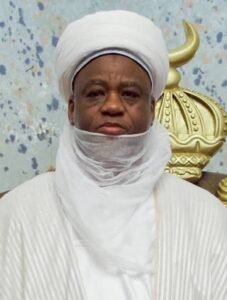Protect traditional institutions from governor’s overreach, MURIC tells NASS

As Nigeria’s National Assembly embarks on a constitutional overhaul of the local government system, the Muslim Rights Concern (MURIC) is pressing lawmakers to boldly curtail state governors’ powers by stripping them of their ability to dethrone traditional rulers unilaterally.
Professor Ishaq Akintola, MURIC’s Founder and Executive Director, made this impassioned plea on Friday, July 19, 2024, urging a more democratic and inclusive approach to governance.
He said in a statement made available to Afri Reporters.
“The National Assembly (NASS) is recently considering the amendment of the constitution to create an independent commission that will take charge of local government elections. This is a laudable move as it will engender transparency in local government elections while it sets the exercise free from interference by state governors.
“However, MURIC is inviting the NASS to go the whole hog by rescuing traditional rulers from the present cul de sac in which the Nigerian political culture has thrown them.
“The traditional stool has become the most unsafe, extremely unstable and categorically unreliable post in present day Nigeria. Emirs, Obas and Obis have become endangered species. They are being exploited, labeled and dumped by successive regimes at the state level.
“No traditional ruler in the country is free from the excessive arm-twisting and tyrannical manipulations of the governors. Every state governor craves, demands and enforces the loyalty of all the traditional rulers in his state and any of the monarchs who fails to follow the governor’s wishes will be labeled as disloyal. Such a traditional ruler stands the risk of being deposed and banished to the most remote village in the state.
“This is why traditional rulers under any governor try to please the latter. It is mere self-preservation method. They have no choice. It is therefore paradoxical that the governor’s successor often sees the traditional ruler as a rebel particularly if the next governor is from a different political party. He seeks to punish the traditional ruler whom he met on the throne for being loyal to the former governor. They never consider the circumstances.
“The vicious cycle continues from one regime to the other and the traditional ruler never knows when he will be kicked out. He is always at the mercy of the governor. State governors have politicized the monarchy and bastardized the traditional system. We charge the NASS to come to their rescue.
“We are not saying traditional rulers are angels. But their cane should not be in the hands of vengeful politicians. In view of the fact that the traditional system has a method for picking its candidates, we should allow that same system to constitute its own checks and balances. For instance, the kingmakers and the state council of traditional rulers are always there. These two bodies can discipline erring traditional rulers by imposing fine, suspension and even dethronement as deemed fit.
“We therefore appeal to our honourable lawmakers in the NASS to save Nigerian traditional rulers by amending or outrightly adding new clauses in relevant sections of the constitution to fortify traditional rulers from dethronement..
“It is only this period of constitutional amendments that this kind of reform in chieftaincy laws throughout the country can be holistically executed. No state governor can manipulate the state’s legislature to change it once the NASS has passed it and the president signs it into law.
“The law will also become binding on all governors because Section 1(i,ii&iii) of the 1999 Constitution of the Federal Republic of Nigeria already affirms the supremacy of the constitution. It stipulates that no other law shall prevail on the constitution and that any rule, regulation, statute, etc that contravenes it shall be rendered null and void.
“We have taken this issue to the NASS because it is cumbersome if each state is to embark on the exercise piecemeal but it can be tackled holistically once and for all from the center by having it embedded in the country’s constitution.
“It is the only way the theory of the separation of powers can effectively operate at the grassroot level. We are of the humble opinion that in our African setting, the theory, which is usually restricted to the executive, the judiciary and the legislature, should be extended further to embrace the traditional system.”






